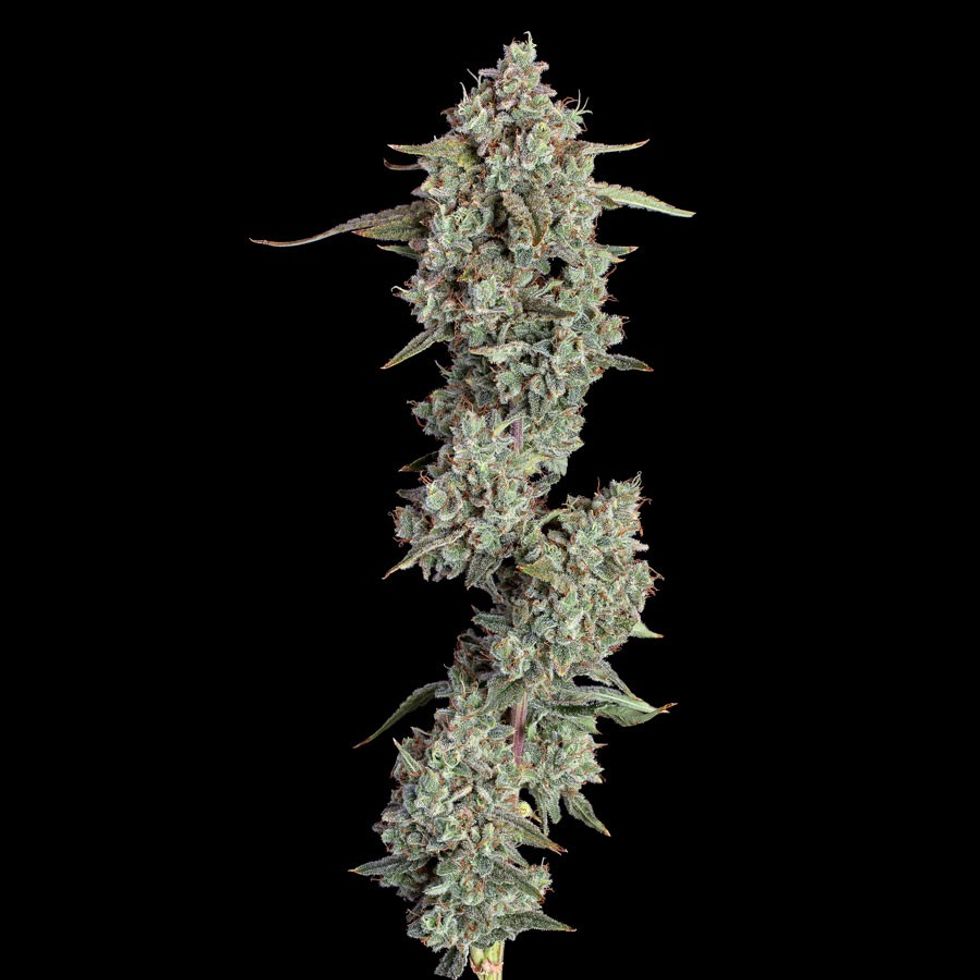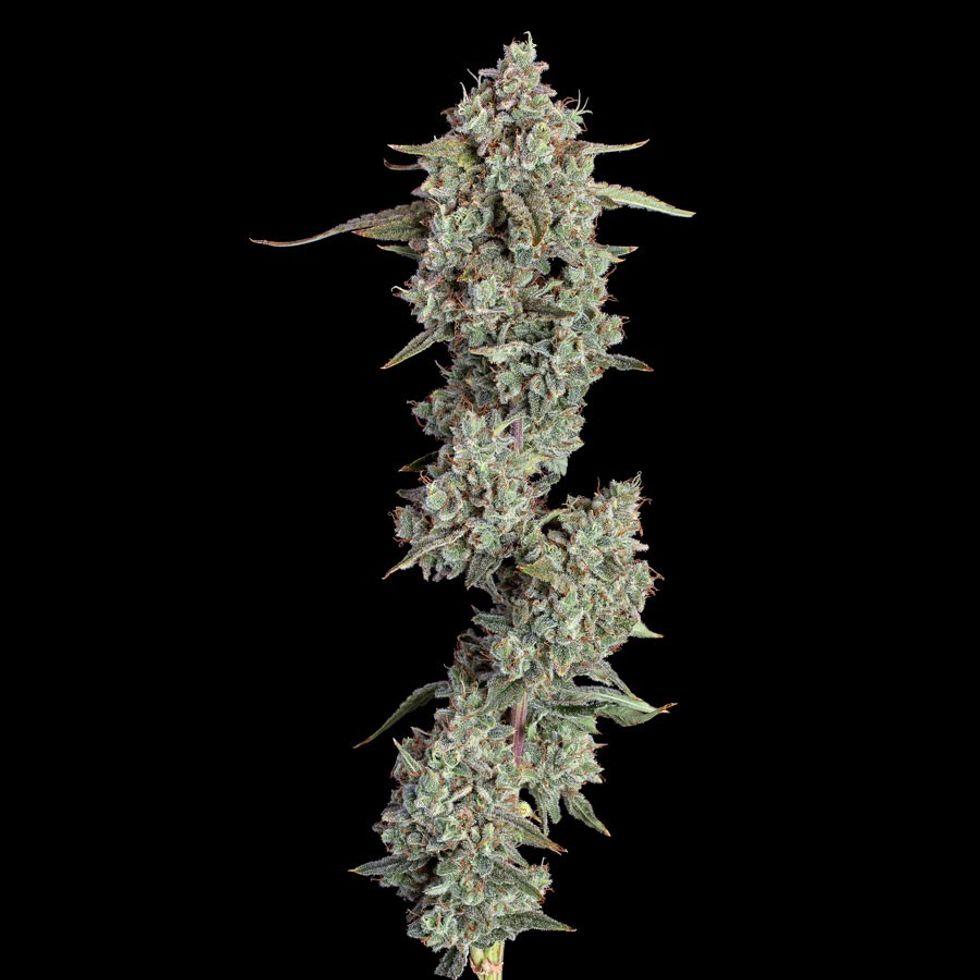The Edge: Jesus Burrola on the Intensity of Cannabis Success
The Edge is a special video series presented by The Bluntness, featuring thought-provoking conversations with leaders and innovators throughout the cannabis industry.
In this episode, we were joined by Jesus Burrola, longtime cannabis advocate and CEO of POSIBL. With 15 years of experience in publicly traded building materials distribution, Burrola worked his way up from trainee to VP, and now he’s maneuvered his way into cannabis.
Known as the “cannabis farm of the future,” POSIBL leverages a state-of-the-art system that uses less to do more, bringing the best greenhouse technology and expertise from traditional agriculture into cannabis, and pairing it with the best possible genetics to produce perfect flower every time.
The Bluntness and Burrola discussed sustainable practices, cannabis-infused beverages,and the most surprising challenges of the industry.
The Bluntness Sits Down With POSIBL CEO Jesus Burrola
Burrola first came to POSIBL with a wealth of experience in distribution, and a major fascination with the cannabis industry.
“[Cannabis] is an industry I was fascinated with. I obviously saw the tremendous growth and opportunity in the industry, and it was something I could leave my mark on,” Burrola said.
Just as he worked his way up from trainee to VP in the distribution world, Burrola quickly went from cannabis industry novice to CEO, where he and his team grow for 13 major cannabis brands throughout California.
“We also have a large construction project that is underway. We’re in the process of expanding another 100,000 square feet, along with new processing capabilities and getting into the extraction world,” Burrola said.
His role is to oversee every aspect of the business, while also recognizing these continued opportunities for growth and ensuring his team is happy, comfortable, and equipped with the tools they need to expand.
When asked about the company culture at POSIBL, the word “intense” came quickly to Burrola’s mind.
“It’s one of a lot of hard work and dedication. I do think that we’ve put together a fantastic team: very different backgrounds, from Wall Street banking, to guys that have spent 30 years in agricultural production, to compliance experts,” Burrola said.
“Everybody comes to this industry with very diverse backgrounds, but everyone has a very defined area of focus. I think we work very well together, and a lot of decisions are made as a team.”
Burrola on Cann Beverages, THC During Work Hours, and Jumping Through Industry Hoops
POSIBL’s focus is on pure, sustainable flower, which is arguably the building block of any cannabis product on the market. His team’s incredible work results in a variety of outcomes, from eighths to edibles and everything in between.
The cannabis industry has so many different types of consumers, and POSIBL provides the foundation to keep everyone happy with their consumption method of choice.
One of Burrola’s favorite cannabis products ever? Infused beverages.
“I love Cann. I drink them almost daily. I think they’re social, they’re fun, they’re healthy,” Burrola said.
Although consuming cannabis is a daily ritual for Burrola – and many others in the industry – that daily tradition doesn’t come until after work hours for the CEO, especially when super high levels of THC are involved.
“For me, it’s post work hours. I like to be sharp in making decisions, and for me, I enjoy it when I know that I don’t have very pressing and important decisions to analyze,” Burrola said.
Perhaps Burrola’s answer would change in regards to another industry, but one of the most surprising things he discovered when he first began working in cannabis is how incredibly challenging it actually is.
He isn’t the first industry expert to admit this. Just as cannabis consumers have long been followed by the tired old “lazy stoner” stigma, the industry itself is plagued with this false preconception that no one actually does any work in weed.
This couldn’t be further from the truth.
“Obviously [the industry] is gaining more and more acceptance, but with regulations changing day in and day out and the inconsistencies in how to handle that,” Burrola said.
“I was surprised at how difficult simple things like writing a check or making a deposit can be. You’ve got to be prepared to go through a lot of headaches.”
The Importance of Proper Dosage, Staying Curious in Cannabis, and His First Experience With Weed
Burrola is right to say the industry (and the plant itself) is gaining more acceptance as the years go by, but many non-consumers are still wary of cannabis due to the decades of anti-weed propaganda that’s been consistently force-fed to society.
To those who remain hesitant, Burrola asks that the importance of proper dosage not be underestimated.
“Dose is important. I think if I tried to drink a bottle of vodka the first time I drank, I probably wouldn’t have had a very good experience, and I probably wouldn’t have wanted to drink much after that,” Burrola said.
“You’ve got to really get comfortable with your dosing to have a good experience. Less is more, initially.”
It takes a lot of time and dedication to truly become familiarized with the ins and outs of cannabis, from terpene profiles to cannabinoid makeup to indica versus sativa versus hybrid. And for as much as there is to learn as a consumer, there’s even more to learn as an industry operator.
When asked who his cannabis hero is from past or present – someone who really helped Burrola understand the industry – greenhouse consultant and expert Eric Brandstad immediately came to mind.
“[He] came and did some consulting with us, and I learned a lot about the plant through him,” Burrola said.
“I did not come from a cultivation background myself, so really getting those layman’s terms, in a simplified way, of how to understand the plant was really important.”
Although Burrola had a long way to go with cultivation knowledge when he got his start in the industry, he was already quite familiar with the basics of consuming cannabis.
He recalled his first time smoking weed – at age 19 in Colorado, out of a pipe.
“I grew up in Mexico, and it’s very stigmatized there because it’s tied to the cartel. It was very scary and taboo,” Burrola said.
“So, it was in the States through a friend’s dad, which I thought was the strangest thing that could have happened. I thought I was being pranked on camera or something.”
Need a little more Bluntness in your life? Sign Up for our newsletter to stay in the loop.



 Stefano Summo for ProPublica
Stefano Summo for ProPublica
 Everglades OG - Happy Valley GeneticsHappy Valley Genetics
Everglades OG - Happy Valley GeneticsHappy Valley Genetics














